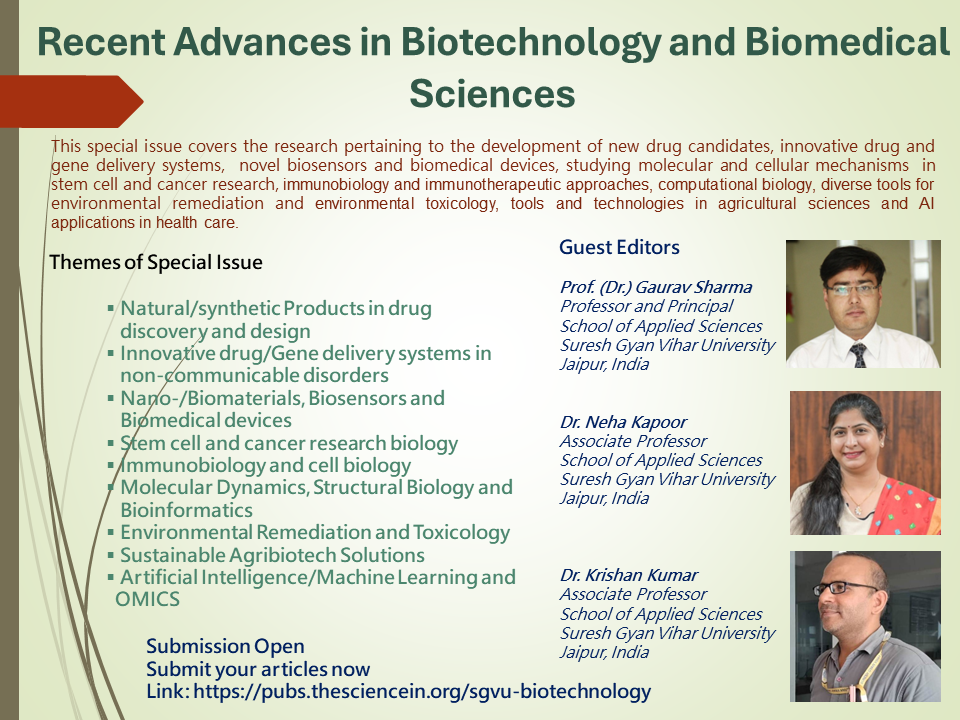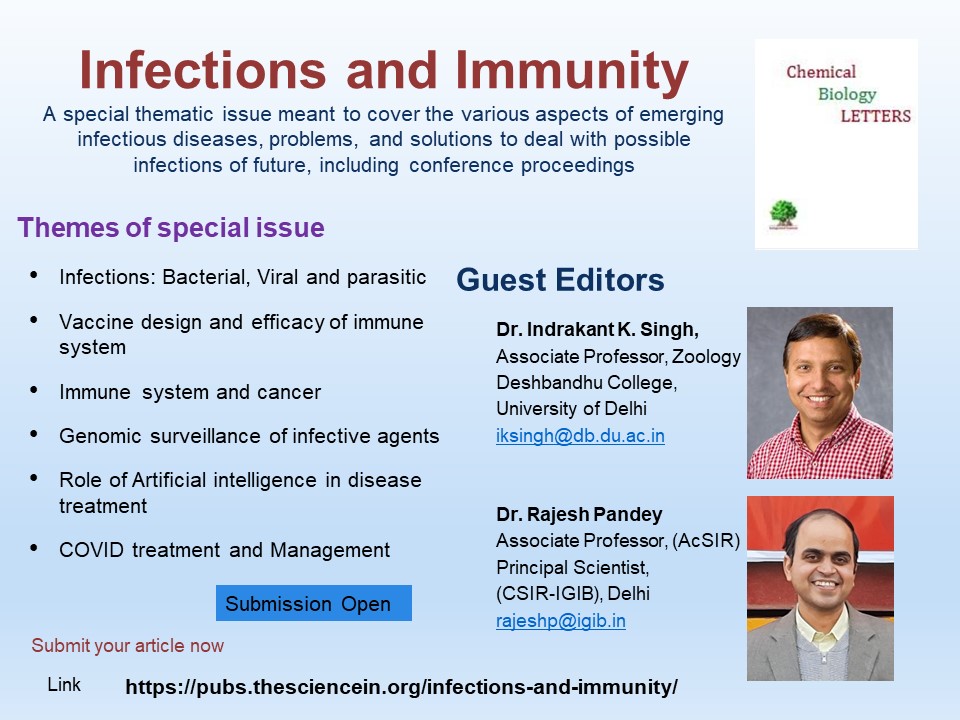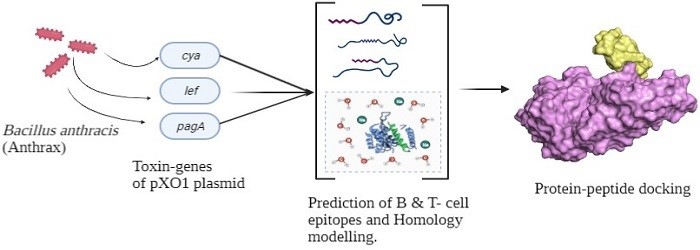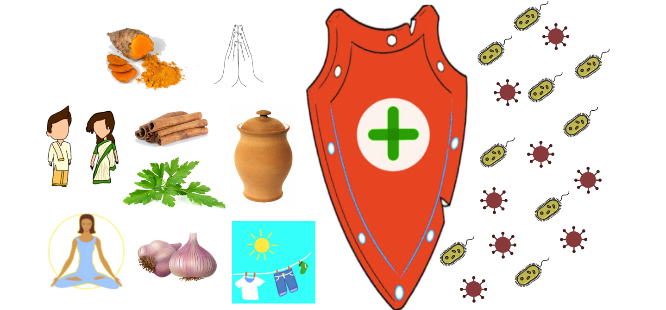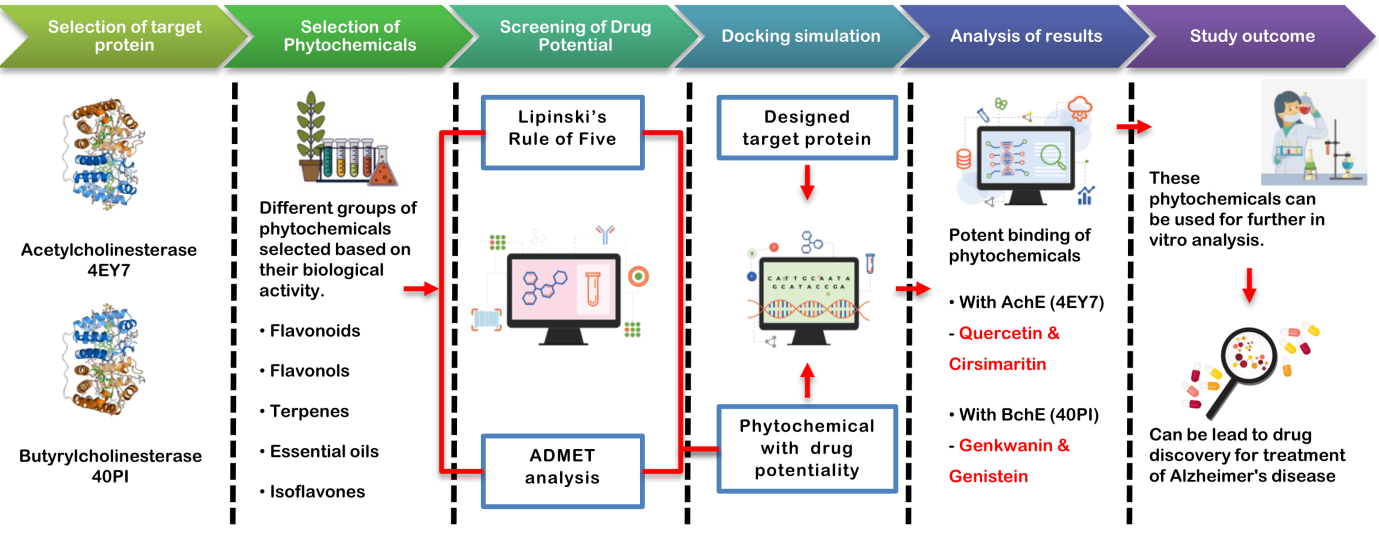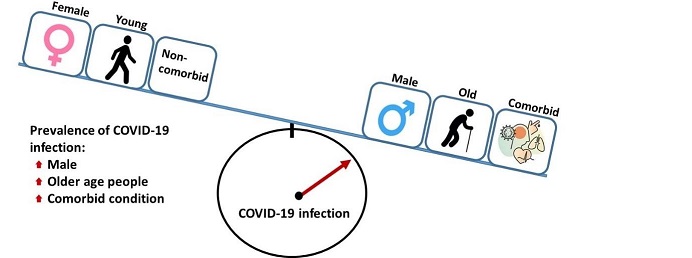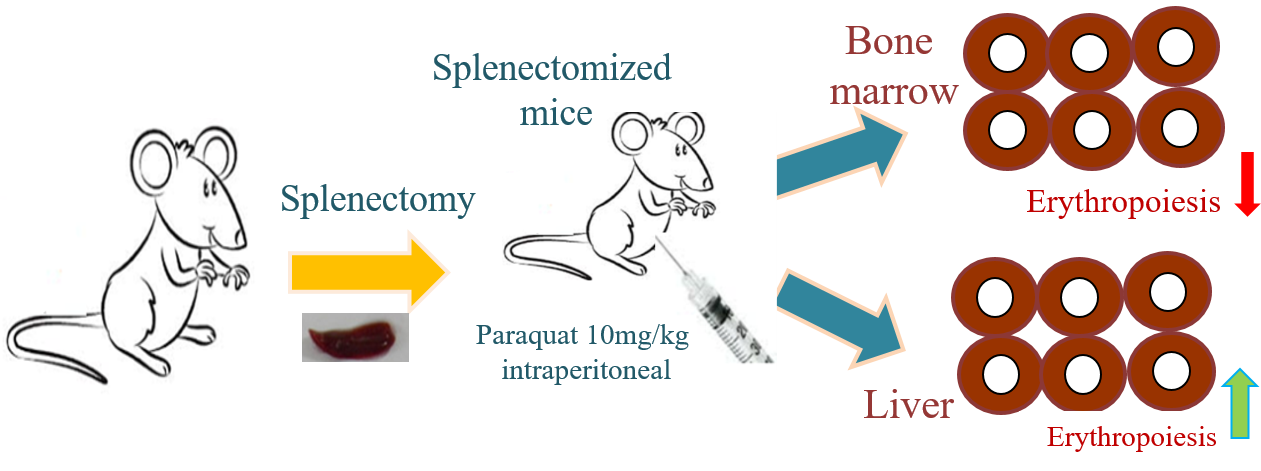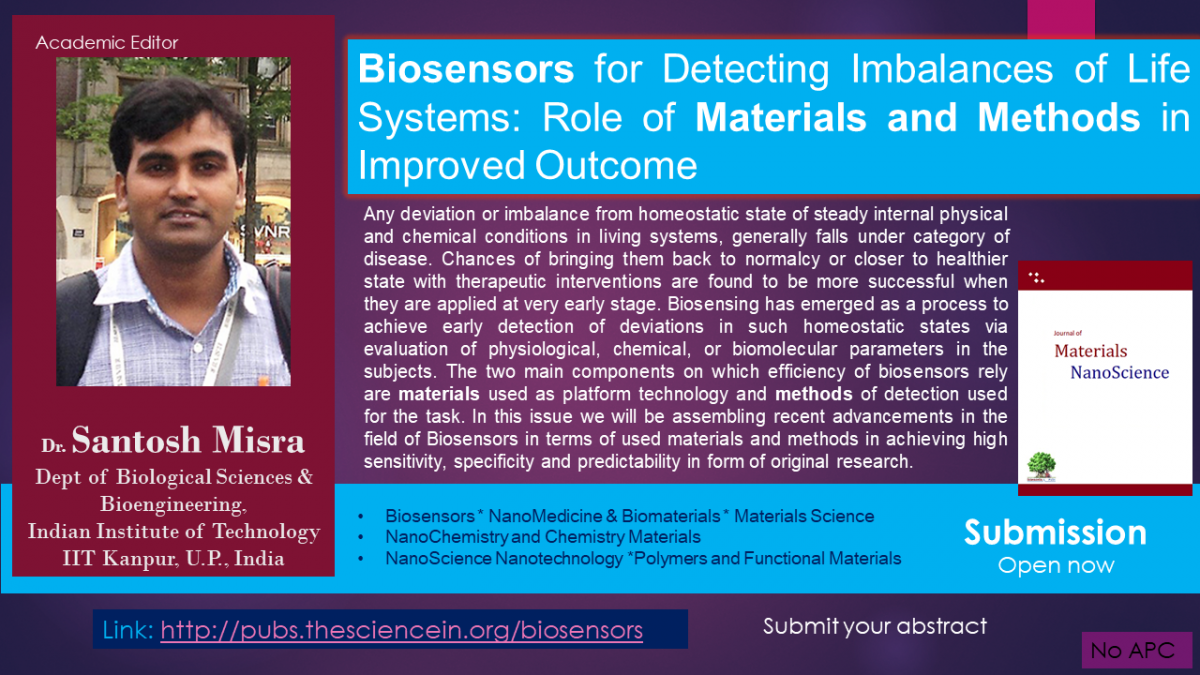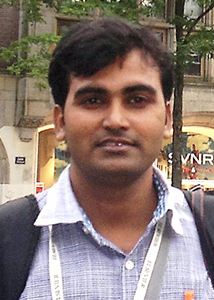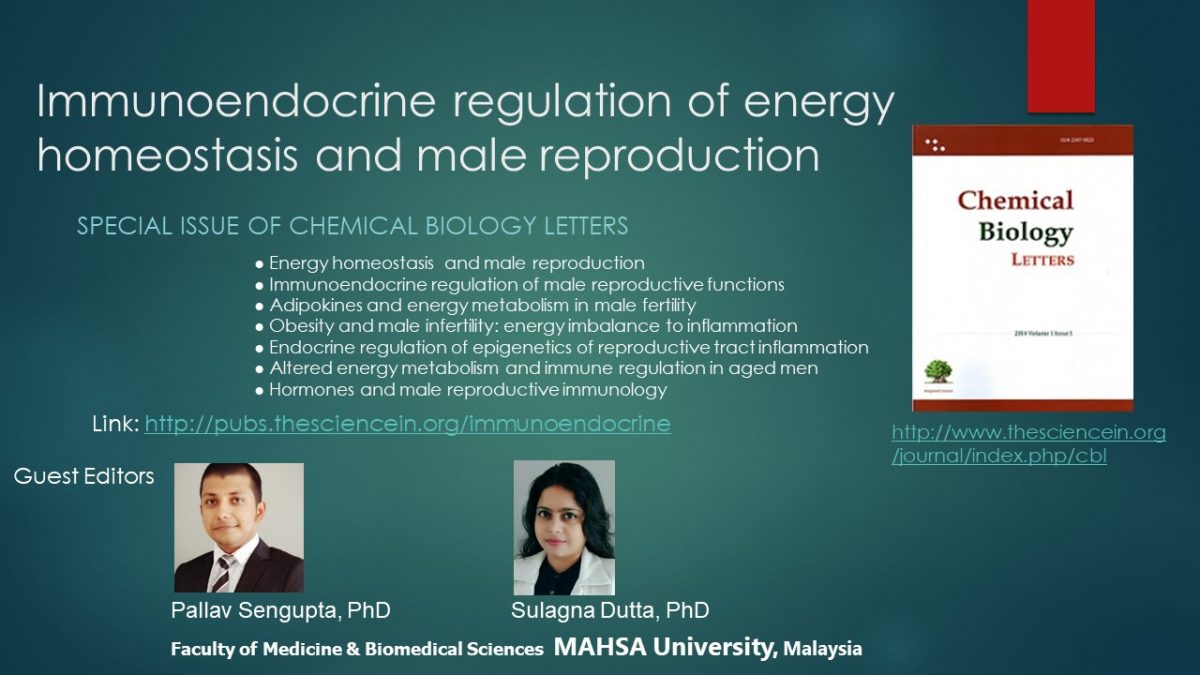The SGVU – Biotechnology Business Incubator and School of Applied Sciences, Suresh Gyan Vihar University (SGVU), Jaipur, India is organizing an International Conference on BIOTECH NEXUS-2024- “Recent Advances in Biotechnology and Biomedical Sciences” on 26th- 27th April 2024. The conference aims at bringing together scientists working in the field of cutting-edge biotechnology and biomedical sciences to discuss groundbreaking advancements that have the potential to address urgent demands of healthcare and agriculture. The conference will serve as avenue for promoting global network among expert scientists and industry personnel to showcase the research developments. The event provides the opportunity to researchers at various levels for showcasing recent developments and ideas to overcome bottlenecks towards improved health and environment.
The breakthroughs in biotechnology and nanobiotechnology are playing a crucial role in improving the healthcare services for modifying treatment procedures and enhancing patient outcomes. The products of biotechnology have been significantly commercialized while providing promising solutions to biotechnology bottlenecks. In contrast, biotechnology has remarkably influenced the field of agriculture while managing crop production relating to food and medicine. On the other hand, continued advancements in biomedical sciences have been underpinning the with a great hope for successful treatments of different human health disorders.
This special issue will cover the recent developments in research pertaining to the development of new natural and synthetic drug candidates, innovative therapeutic delivery systems and methods, nano-/biomaterials and their application, novel biosensors, biomolecule detection technologies and biomedical devices, studying molecular and cellular mechanisms in stem cell and cancer research, studying immune system function and development and immunotherapeutic approaches, progress in Computational biology and bioinformatics, diverse tools for environmental remediation and environmental toxicology, tools and technologies in agricultural sciences and AI applications in health care.
Themes of special issue
- Natural/synthetic Products in drug discovery and design
- Innovative drug/Gene delivery systems in non-communicable disorders
- Nano-/Biomaterials, Biosensors and Biomedical devices
- Stem cell and cancer research biology
- Immunobiology and cell biology
- Molecular Dynamics, Structural Biology and Bioinformatics
- Environmental Remediation and Toxicology
- Sustainable Agribiotech Solutions
- Artificial Intelligence/Machine Learning and OMICS
Guest Editors
Prof. (Dr.) Gaurav Sharma
Professor and Principal
School of Applied Sciences
Suresh Gyan Vihar University
Jaipur, India
Dr. Neha Kapoor
Associate Professor
School of Applied Sciences
Suresh Gyan Vihar University
Jaipur, India
Dr. Krishan Kumar
Associate Professor
School of Applied Sciences
Suresh Gyan Vihar University
Jaipur, India
Date Schedule
Article Submission: 15-June-2024
Issue Completion: 30-August-2024
Submission
Authors need to submit their articles to guest editors/conference secretariat for preliminary evaluation and peer -reviewing. Final accepted article will have to be submitted on (the recommended) respective journal site).
Participating Journals
Biomedical and Therapeutics Letters https://pubs.thesciencein.org/journal/index.php/btl
Chemical Biology Letters https://pubs.thesciencein.org/journal/index.php/cbl
Journal of Molecular Chemistry https://pubs.thesciencein.org/journal/index.php/jmc
Journal of Materials NanoScience https://pubs.thesciencein.org/journal/index.php/jmns Journal of Molecular Materials https://pubs.thesciencein.org/journal/index.php/jmm
Journal of Integrated Science and Technology https://pubs.thesciencein.org/journal/index.php/jist (APC applicable)
Applied NanoMedicine https://pubs.thesciencein.org/journal/index.php/nanomed
